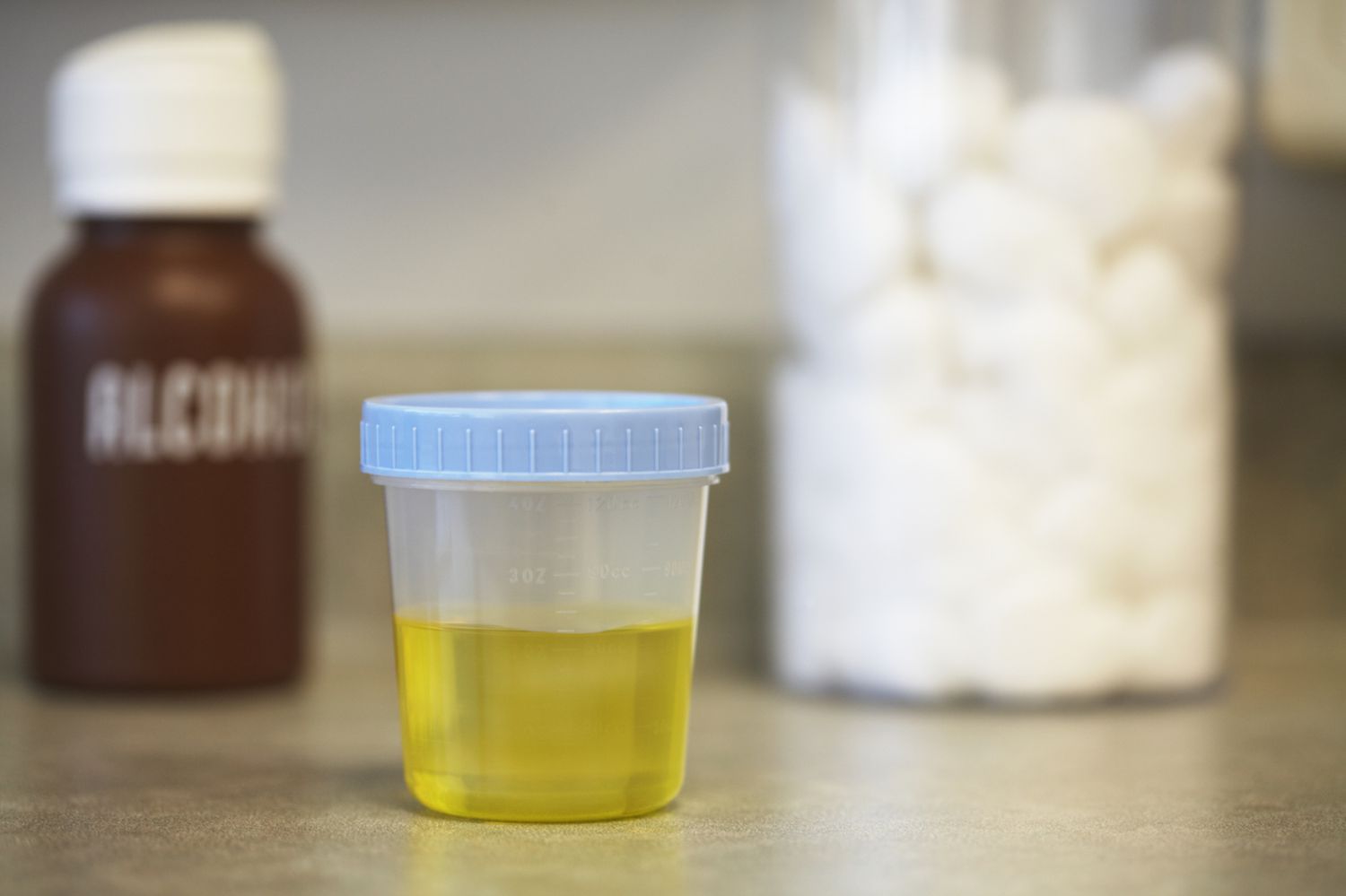What are the symptoms of pyuria?
Pyuria is a condition characterized by the presence of pus in the urine, which typically indicates an infection or inflammation in the urinary tract. Symptoms of pyuria can include:
- Cloudy or Murky Urine: The urine may appear cloudy or have a turbid appearance due to the presence of pus cells.
- Foul-Smelling Urine: An unpleasant or strong odor may be noticeable.
- Frequent Urination: Increased frequency of urination may occur, often with only small amounts of urine being produced.
- Painful Urination (Dysuria): Discomfort or a burning sensation while urinating is common.
- Urgency to Urinate: A persistent, strong urge to urinate, even when the bladder is not full.
- Lower Abdominal Pain: Pain or discomfort in the lower abdomen or pelvic area.
- Flank Pain: Pain in the lower back or side, which can indicate a kidney infection.
- Hematuria: Presence of blood in the urine, which may appear as pink, red, or brown discoloration.
- Systemic Symptoms: If pyuria is due to a more severe infection, symptoms might include fever, chills, and malaise.
The presence of pyuria is typically diagnosed through urinalysis, which can detect pus cells in the urine. The underlying cause of pyuria, such as a urinary tract infection (UTI), kidney infection, or other inflammatory conditions, needs to be identified and treated accordingly. Treatment often involves antibiotics or other medications based on the specific cause of the pyuria.
What are the causes of pyuria?
Pyuria, the presence of pus in the urine, can be caused by various conditions, primarily involving infection or inflammation in the urinary tract. Common causes include:
- Urinary Tract Infections (UTIs): The most common cause of pyuria is a UTI, which can affect the bladder (cystitis), urethra (urethritis), or kidneys (pyelonephritis). Bacterial infections lead to the accumulation of pus cells in the urine.
- Kidney Infections: Infections of the kidneys, such as pyelonephritis, can cause pyuria along with symptoms like flank pain, fever, and nausea.
- Bladder Infections: Cystitis or inflammation of the bladder often results in pyuria and may present with symptoms such as frequent urination, urgency, and painful urination.
- Urethritis: Inflammation of the urethra, often caused by bacterial infections or sexually transmitted infections (STIs), can lead to pyuria.
- Kidney Stones: The presence of kidney stones can cause irritation and inflammation in the urinary tract, potentially leading to pyuria.
- Chronic Kidney Diseases: Certain chronic kidney conditions can result in inflammation and pyuria.
- Interstitial Cystitis: A chronic condition characterized by bladder inflammation that can cause symptoms similar to a UTI, including pyuria.
- Sexually Transmitted Infections (STIs): Some STIs, such as gonorrhea or chlamydia, can cause urethritis and result in pyuria.
- Prostatitis: Inflammation of the prostate gland in males can lead to pyuria and other urinary symptoms.
- Autoimmune Disorders: Conditions like systemic lupus erythematosus (SLE) can cause inflammation in various organs, including the urinary tract.
- Tuberculosis (TB) of the Kidney: Although less common, renal tuberculosis can cause pyuria and other symptoms related to kidney infection.
Diagnosis typically involves a urinalysis to detect pus cells, along with additional tests to identify the underlying cause, such as urine cultures, imaging studies, or further evaluations based on clinical suspicion. Treatment depends on addressing the underlying condition, often with antibiotics or other appropriate therapies.
What is the treatment for pyuria?
The treatment for pyuria primarily focuses on addressing the underlying cause of the condition. Here are common approaches based on different causes:
- Antibiotics: If pyuria is due to a bacterial urinary tract infection (UTI), antibiotics are commonly prescribed to target the specific bacteria causing the infection. The choice of antibiotic is based on urine culture results and sensitivity testing.
- Increased Fluid Intake: Drinking plenty of fluids can help flush out bacteria and irritants from the urinary tract, which can be beneficial in managing mild UTIs or promoting general urinary health.
- Pain Relief: Over-the-counter pain relievers, such as acetaminophen or ibuprofen, may be used to alleviate discomfort or pain associated with pyuria, especially if it’s related to infections or inflammation.
- Treatment of Underlying Conditions: For pyuria caused by conditions such as kidney stones, prostatitis, or interstitial cystitis, specific treatments targeting those conditions are necessary. This might include procedures to remove kidney stones, medications to manage inflammation or infections, or other targeted therapies.
- Management of STIs: If sexually transmitted infections (STIs) are the cause, appropriate antimicrobial treatment for the specific STI will be prescribed.
- Medical Evaluation: In cases where pyuria is associated with chronic kidney disease or autoimmune disorders, managing the underlying disease with specialized treatment may be necessary.
- Avoiding Irritants: Reducing or avoiding substances that can irritate the urinary tract, such as caffeine, alcohol, or spicy foods, may help alleviate symptoms in some cases.
- Follow-Up Care: Regular follow-up with a healthcare provider is important to monitor the effectiveness of treatment and ensure that the underlying condition is adequately managed.
It’s essential to consult a healthcare professional for an accurate diagnosis and appropriate treatment plan based on the specific cause of pyuria. Self-treatment without addressing the underlying issue may lead to complications or persistent symptoms.

Leave a Reply
You must be logged in to post a comment.